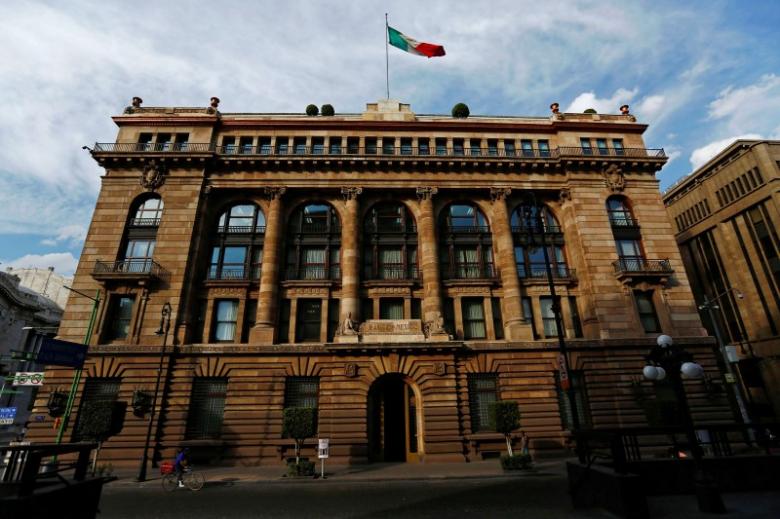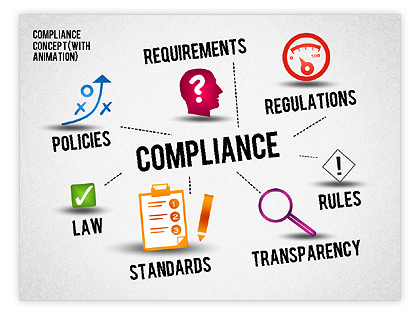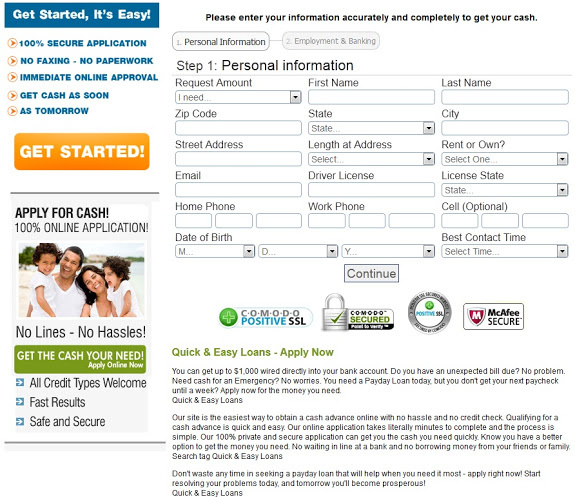Below is an updated review of Puerto Rico’s tax incentives for 2017. Major changes were made to Act 20 and Act 22 on July 11, 2017 (the most popular of Puerto Rico’s tax incentives). In addition, some of the tax incentives have been added and others have been amended. Below is a complete list of the tax holidays available in Puerto Rico as of August 2017.
A new business friendly government has been elected in Puerto Rico and they’re making you a tax deal you can’t refuse. Move a business to the island and pay only 4% in tax, move yourself to Puerto Rico and pay zero in capital gains, set up a bank or hedge fund and pay only 4% tax, etc. The list of tax incentives in Puerto Rico has become very impressive.
And only Puerto Rico can offer you these tax incentives. We US citizens are taxed on our worldwide income. The ONLY exception to this is residents of the US territory of Puerto Rico.
Residents of Puerto Rico don’t pay US taxes on Puerto Rico sourced income. They pay only Puerto Rico tax on local profits and capital gains (including stock gains in publicly traded companies). See US Tax Code Section 933.
This means that Puerto Rico is free to set whatever tax rates it wants. In years past, the government would charge residents about the same as the US IRS, so there was no benefit to relocating.
Today, Puerto Rico has many tax incentives for business and high net worth individuals. The government is very motivated to attract quality businesses to the island and has pulled out all the stops with these updated tax incentives. For more, see How to benefit from Puerto Rico’s bankruptcy.
Puerto Rico’s tax incentives have turned this territory into a tax haven on steroids. Whether you’re a high net worth individual, a one man shop, or a multinational, there’s a tax incentive for you.
Few places in the world offer a better return on investment than Puerto Rico. With a growing variety of services and emerging industries, the island’s success will be directly attributable to the incentives available. To diversify the economy, the local government has developed an aggressive economic stimulus package in the form of tax incentives to help make operations on the island more profitable for companies settling here.
Ranging from exporting services, practicing medicine, tourism, and manufacturing, there are a variety of tax incentives available in Puerto Rico. Below is an updated list of tax incentives the territory has to offer:
A List of Puerto Rico’s Tax Incentives for 2017
| Act 20 |
Known as the law to promote the export of services, Act 20 offers attractive tax incentives for companies at fixed rate of 4% and minimal requirements that establish and expand the export services industry on the island. The tax incentive is guaranteed for 20 years. See below for more information. |
| Act 22 |
Law to Encourage the Relocation of Individual Investors to Puerto Rico seeks to attract new residents to the Island. It offers a total tax exemption on passive income generated or accumulated once the individual is a bona fide resident of Puerto Rico. Tax exemption on capital gains and much more. |
| Act 73 |
Known as the Puerto Rico Economic Incentives for Development Act, was established to provide an efficient environment and opportunities for the development of local industry, to offer an attractive contributory proposal, to attract foreign direct investment and to promote the economic and social development of Puerto Rico. |
| Act 273 |
Regulates the organization and operation of international financial institutions authorized by the Office of the Commissioner of Financial Institutions to operate in Puerto Rico, and grants tax exemption decrees, among other benefits. The export of services is an economic activity that has been identified as one of the key pieces for the economic development of Puerto Rico and financial services employ the largest number of people per business under the tax incentives. The IFE tax incentive is generally used by international banks, investment funds, hedge funds and family offices. |
| Act 399 |
International insurers and reinsurers act allows entities to organize a captive insurance in Puerto Rico. International insurers may incorporate a holding company for the interest in another company. Tax exemptions for insurers that qualify for an international insurer license are 100% exempt on all income (including liquidation and dissolution of its operations in PR) derived by the international insurer or international insurer holding company. Also, 100% tax exemption on municipal license tax, property tax, dividends, and distributions to its shareholders. Moreover, interest, dividends or distributions paid to foreign entities or non-residents, not engaged in business in Puerto Rico are tax free. Captive insurance in Puerto Rico facilitates business through alternative risk management strategies and as a vehicle to enter Latin America and US markets. Integrated insurance plans and segregated assets plans serving high net worth individual markets are the focus of most companies using this tax incentive. |
| Act 185 |
Private Equity Funds not only represent a proven alternative to investment, but also constitute a financing and economic propulsion tool that facilitates the pooling of private capital in order to finance the expansion of companies, restructure businesses at risk and to promote pioneering businesses in full development. In addition, by promoting this investment vehicle used by investors around the world, it promotes the creation of jobs for professionals in the field of securities and financial business in Puerto Rico, as well as the development of the securities industry on our Island. Private equity funds generally pay a 4% tax rate on gains. |
| Act 135 |
The Young Entrepreneurs Act was established for hard working young adults within the ages of 16 to 35. The subsections of this Act grants tax exemption for individuals (from ages 16 to 26 making under $40,000) and new business (from ages 16 to 35 until $500,000). |
| Act 74 |
The Act for Tourism Development, offered through the Puerto Rico Tourism Company, provides incentives for the development of world-class tourist industry. The benefits granted under this law will be valid for 10 years from the time that the eligibility of the tourism project is established and if they are eligible they can be extended to apply to the operational phase for an additional 10 years. Act 74 is most commonly used by large hotel projects, but a variety of projects can qualify. |
| Act 14 |
The law for the retention and return of medical professionals hopes to keep and return some doctors to the island by offering them a tax deal. In order to establish a rate of contribution on income and dividends accrued in medical practice to doctors residing in Puerto Rico the law hopes to halt the mass exodus of the Puerto Rican medical class and encourage the return or transfer of medical professionals to Puerto Rico, especially medical specialists. As of July 11, 2017, Act 14 can be combined with the telemedicine components of the Act 20 tax incentive program. |
| Act 83 |
Establishes standards to promote renewable energy, in accordance with short, medium and long-term compulsory targets, known as the Renewable Energy Portfolio |
These are benefits of the Puerto Rico Tax Incentives in 2017:
Act 20 Export Services from Puerto Rico attempts to create a “World Class International Service Center” in the Commonwealth of Puerto Rico. The Act 20 tax incentive is for businesses providing a service from Puerto Rico to companies or person’s outside of Puerto Rico. Just about any portable, online, or service business can qualify.
Remember that residents don’t pay US federal taxes on Puerto Rico sourced income (Section 933). Under the umbrella of the Act 20 tax incentive, the entity in Puerto Rico will pay 4% corporate tax for eligible export services and receive a 100% exemption on dividends for PR bona fide resident shareholders. That means the corporation will pay 4% on net profits and can distribute those profits to a residents of Puerto Rico tax free. You can exchange your US rate of 40% for a PR rate of 4% overnight.
In general, businesses providing eligible services in the categories of corporate headquarters, call centers, internet marketing, online businesses, and just about any portable business will pay 4% in corporate tax and enjoy 100% exemption from property taxes during the first five years of operations. After the 5 years period, a 90% exemption will apply to property taxes and the 4% rate is good for 20 years. The Act 20 decree is granted for a 20-year term, renewable for 10 additional years, provided certain conditions are satisfied. That is to say, the 4% Act 20 tax incentive is guaranteed for 20 years.
To obtain an Act 20 decree, the business must meet minimal requirements. For example, the entity should be a new entity incorporated and the owners must pass a background check (can’t have a criminal record). Local businesses may apply for the Act 20 tax incentive program.
As of July 11, 2017, there is no minimum number of employees of an Act 20 tax incentive. As you read articles on the web, note that the number of employees was 3 in 2012. It increased to 5 in December of 2015 and is now zero. For more information, see: Puerto Rico Eliminates 5 Employee Requirement.
There are a few exceptions to this rule. If the Act 20 tax incentive company offers a substantial amount of employment outside of Puerto Rico, the Secretary of DDEC may mandate reasonable ratios of local to non resident employees. For example, you have 100 employees in the Philippines and 2 in Puerto Rico. The government is likely to require you increase your PR workforce.
Also, the Act 20 tax incentive business must provide eligible export services specified under the regulations. You will find a list of those services below. Also, an Act 20 company is prohibited from offering services to locals.
That is to say, an Act 20 tax incentive company must be providing a service from Puerto Rico to companies or persons outside of Puerto Rico.
Only Puerto Rico sourced income qualifies for this 4% tax incentive. Puerto Rico sourced income is usually income generated by work done in Puerto Rico.
Likewise, income earned from work done in the United States is always US source income and taxable in the US. US source income is never Puerto Rico source income and doesn’t qualify for the tax incentive. For more, see: What is Puerto Rico Sourced Income for an Act 20 Business.
Eligible Activities For Act 20 Tax Incentive in Puerto Rico
- Research and development;
- Advertising and public relations;
- Consulting services, including, but not limited to, economic, scientific, environmental, technological, managerial, marketing, human resources, computer and auditing consulting services; Advisement on matters of any industry or business;
- Creative industries defined as any business with the potential to create jobs and income, principally on exportation of good and services in the following sectors: Design (graphic, industrial, fashion, interior) Art (music,visual art, performing arts, publications)
- Media (app development, video games, online media, digital content and multimedia)
- Creative Services (architecture and creative education);
- Production of blueprints, architectural and engineering services, and project management;
- Professional services such as legal, tax and accounting services;
- Centralized management services, including, but not limited to, strategic direction, planning, distribution, logistics and budgetary services carried out by the headquarters or similar regional offices of an entity engaged in rendering such services;
- Centers for electronic data processing;
- Development of computer software;
- Voice and data tele-communications between persons located outside of Puerto Rico;
- Call centers;
- Shared services centers, including, but not limited to, accounting, finance, tax, auditing, marketing, engineering, quality control, human resources, communications, electronic data processing, and other centralized management services;
- Storage and distribution centers of businesses dedicated to transportation of products and articles pertaining to third parties, also known as hubs;
- Educational and training services;
- Hospital and laboratory services;
- Investment banking and other financial services, including but not limited to, asset management, management of investment alternatives, management of activities related to private capital investment, management of hedge funds and high risk funds, management of pools of capital, management of trusts that serve to turn different types of assets into stocks, and management of escrow accounts;
New Eligible Activities for the Act 20 Tax Incentive as of July 2017
- Hospital services and laboratories including medical tourism and telemedicine facilities.
- Companies dedicated to international trading (known as trading companies) – Trading companies will mean any entity that produces no less than 80% of gross income from the following:
- Sales to any persons or entities that are outside of Puerto Rico, for use, consumption or disposition outside of Puerto Rico, of products which have been manufactured inside or outside of Puerto Rico and have been bought by the eligible business for resale;
- From commissions derived from sales of goods for consumption and use outside of Puerto Rico will be considered industrial development income. The property used for this income is not used for other activities not authorized under tax decree; and
- Other eligible exportation services as described under this law.
Puerto Rico’s Act 22 Tax Incentive
The Act 22 tax incentive, also known as the Act to Promote the Relocation of Investors to Puerto Rico, provides a total exemption from tax on Puerto Rico sourced capital gains, interest, and dividends realized once the individual is declared a bone fide resident. Once the investor becomes a bona fide resident, Puerto Rico’s Act 22 tax incentive will also grant them a 100% tax exemption with respect to gains from the sale of Puerto Rico property acquired if the sale takes place before 1/1/2036 and after their bonafide residence status. In addition, 90%-100% exemption on short and long-term capital gains, and 100% exemption on passive income, and 100% exemption on federal taxes on Puerto Rico source income for bona fide residents.
Act 22 decree holders may also qualify for Act 20 and various other tax holidays.
If you’re already a resident of Puerto Rico, you can’t use the Act 22 tax incentive. To obtain decree, you must not have been a resident of Puerto Rico at any time during the 6-year period prior the effective date of the Individual Investors Act (Jan 11, 2012). (Amended to 6 years before 2012 – it was previously 15 years.)
A Puerto Rico bona fide resident is an individual who is domiciled in Puerto Rico. Physical presence in Puerto Rico for a period of 183 days during the taxable year will create a presumption of residency for tax purposes. Other requirements are the individual cannot have a tax home outside of Puerto Rico and can’t maintain closer connections to United States or any other foreign country than to Puerto Rico.
Also, you must purchase a residence in Puerto Rico within 2 years of applying for Act 22. I suggest you do this ASAP because you must prove to the IRS that Puerto Rico is your home and you’re not there on a temporary basis. Buying a home within 2 years is required under the law and buying a home as soon as possible will help you if you’re selected for audit in the United States.
Basically, Puerto Rico should be your home for the foreseeable future. The territory should be where you call home, where you return to when you travel, and where most of your business interests are located. On a similar note, you should break as many ties to the United States as possible and focus your life in Puerto Rico.
Annual reports with the Office of Industrial Tax Exemption including evidence of compliance of conditions and requirements of the grant for taxable year immediately before the filing date of report.
Government Fees
$5,000 fee is due upon the approval of decree under Act 22 in addition to fees due with filing of Grant application. These fees do not include legal and other fees associated with negotiating the decree.
New July 2017 amendment requires you to donate at least $5,000 per year to an official charity in Puerto Rico each year. See: Changes to Puerto Rico’s Act 20 and Act 22
To qualify for the full Act 22 incentives, individual must become a bona fide resident of Puerto Rico.
Again, applicants must acquire a residential property in the first 2 years since the date of the notification of residency. (2015 amendment). The presentation of the Deed of Purchase & Sale is mandatory.
The focus of the Act 22 tax incentive is to eliminate capital gains on assets acquired after you move to the island. It’s also possible to allocate gains on assets acquired before you move to Puerto Rico between the United States and Puerto Rico.
Puerto Rico Tax Incentive Allocations
Tax exemptions on capital gains for Act 22 has a 10 year rule.
- If the gain is Puerto Rico sourced income, the 10 year rule doesn’t apply and you pay zero tax. This usually applies to gains on stocks purchased after you move to Puerto Rico.
- For Non-PR sourced income, which is usually assets purchased prior to becoming a Puerto Rico bona fide resident, you pay 10% in capital gains to Puerto Rico if you sell before before 10 years of residency and 5% to Puerto Rico if you sell after 10 years residency but before 1/1/2036.
- A US investor with a US source gain, that sells before the 10 year term, pays US capital gains tax on the sale. After the 10 year term, you pay no federal income taxes.
Let’s say you buy Microsoft stock in 2010. When you move to Puerto Rico in October of 2017 you have an accrued gain of $200 per share. You live in Puerto Rico for 5 more years and accrue another $100 in gains. So, your total appreciation in the stock from 2010 to 2022 is $300 per share.
You sell the stock in 2022 and allocate the $300 gain between the United States and Puerto Rico. $200 of the gain is taxable at standard US capital gains rates, or 20% (assuming Trump does away with the Obamacare tax).
You also pay 10% on the $100 Puerto Rico sourced gain – the gain that accrued while you were a resident of Puerto Rico.
Had you held the stock for 10 years in Puerto Rico, or until October of 2027, you would have paid only 5% in capital gains tax on the $300 gain. You would not have paid any tax to the United States.
It’s important to note that Puerto Rico’s tax incentive for investors applies to Puerto Rico sourced gains and not US sourced gains. So, real estate in the United States, and rental properties in the United States do not qualify for Act 22. These are always US sourced gains and taxable by Uncle Sam. The same applies to partnership income (K-1s), interest income from banks in the United States, and any other US source income.
Remember that only Puerto Rico can offer these tax incentives on capital gains. When a US citizen moves to a foreign country, they must pay US tax on their passive income. Only Puerto Rico is exempted from US tax on capital gains.
So, in the stock example above, if you were living in France or Panama, you would pay US capital gains tax on your stock sale. Regardless of whether you sold those Microsoft shares in 2022 or 2027, you would pay US long term capital gains on the transaction.
Puerto Rico’s Act 273 Tax Incentive
Act 273-2012 was approved with the intention of expanding International Financial Centers into Puerto Rico and significantly increasing the promotion and knowledge of the Island throughout the world’s financial circles. The result has been to turn Puerto Rico into a major international banking center.
Most who secure an Act 273 tax decree and license use it to build an international or offshore bank. A full service international bank that provides services to people and companies outside of Puerto Rico. Act 273 tax incentive for financial entities may offer services in the United States. Activities for the IFE must comport by AML and KYC regulations, BSA, FDIC “Standards” (does not need to be FDIC regulated) under the government of Puerto Rico.
What makes Act 273 unique is that the charter can be used to build any type of financial services entity you require. It’s not just a simple banking charter as is available from other jurisdictions. With Puerto Rico’s tax incentive program you select from a menu of services you wish to offer. Depending on the services you select, you can setup either a bank, fund manager, investment advisory firm, family office, etc.
And Puerto Rico’s Act 273 has been an amazing success. While other tax havens are adding 1 or 2 banks a year, Puerto Rico issued 15 licenses in 2016 and looks to approve 20 IFE’s in 2017. Puerto Rico is already the largest offshore banking jurisdiction in the Caribbean after the Cayman Islands… and Cayman has a 20 year head start. It seems that Puerto Rico could pass Cayman in 3 or 4 years. For more, see Top 5 Offshore Bank License Jurisdictions for 2017
To date, International Financial Entities licenses have been issued to operate an international bank, a fund and investment manager, a family office, trading desks for international banks, and “in-house” correspondent bank, brokerages (additional license required), Bitcoin exchange, blockchain based bank, money transmitters / remitters, merchant services, and many other types of financial service entities.
In its most basic form, Puerto Rico’s Act 273 tax incentive is Act 20 for banks. It’s used to incorporate and license offshore banks in the territory, most of which do business with companies and individuals outside of Puerto Rico and outside of the United States. For an introductory article on using this tax incentive from Puerto Rico to operate an offshore bank, see: Lowest Cost Offshore Bank License is Puerto Rico.
In addition to operating as a bank, IFEs, along with the support of the Office of the Commissioner of Financial Institutions, are allowed to the purchase loans in Puerto Rico that are classified or high risks, from any bank that is considered to be a domestic person or any branch of Puerto Rico of a foreign bank. This include the execution of collateral related to said loans and the sale of the property that served as collateral of such loans.
If an investor wanted to come in and buy up properties in Puerto Rico while the bankruptcy is in process, they could do so in a tax advantaged way by forming and IFE under the Act 273 tax incentive.
Requirements For Puerto Rico’s Tax Incentive Under Act 273
- Non refundable application fee of $5,000.00
- BSA, KYC, AML compliance program requiredAuthorized capital stock no less than $5 million
- Paid in capital of at least $250,000
- Deposit with a local bank as a bond of $300,000
- Minimum of 4 employees in Puerto Rico
- Local office and IT infrastructure approved by regulators.
- Financial Statements for the past 10 years, for shareholders with 10% or more in capital of the proposed IFE
Puerto Rico’s Act 273 tax incentive is guaranteed for 15 years and may be renewed.
Your IFE will pay corporate tax at 4% on its net profits. This tax rate applies to Puerto Rico sourced income. PR sourced income is earnings and profits from work performed in Puerto Rico. Therefore, most IFE’s have a significant number of employees in Puerto Rico. For a detailed article, see: Tax Planning for an International Bank License
List of Services Permitted Under Act 273
- Accept deposits from foreign individuals in accounts as well as demand or fixed term deposits and interbank deposits of funds, or otherwise borrow money from international financial institutions and any other foreign person;
- Make, procure, place, guarantee, secure , bond or service loans;
- Issue, confirm, give notice, negotiate or refinance letters of credit, including transactions for the financing of exports, even if the beneficiary is a domestic person;
- Discount, rediscount, deal or otherwise trade in money orders, bills of exchange and similar instruments;
- Invest in securities, stocks, notes and bonds of the Government;
- Carry out any banking transactions allowed by the Act in the currency of any country, or in gold or silver, and participate in foreign currency trade;
- Underwrite, distribute, and otherwise trade in securities, notes, debt instruments, drafts and bills of exchange issued by a foreign person for final purchase outside of the jurisdiction;
- Engage in trade financing of import, export, barter and exchange of raw materials and finished products activities with domestic persons;
- Engage in any activity of a financial nature outside of the jurisdiction which would be allowed to be done, directly or indirectly, by a bank holding company or by a foreign office or subsidiary of a United States bank under applicable United States law;
- Act as fiduciary, executor, administrator, registrar of stocks and bonds, property custodian, assignee, trustee, attorney in fact, agent, or in any other fiduciary capacity;
- Acquire and lease personal property at the request of a lessee who is foreign person, pursuant to a financial lease agreement that complies with the Regulations;
- Buy or sell securities and provide investment advice in relation to such transactions;
- Act as a clearinghouse in relation to financial contracts of instruments of foreign persons;
- Organize, manage, and provide management services to international financial institutions, and other types of financial entities located outside of the jurisdiction, such as investment companies and mutual funds;
- Engage in such other activities as are expressly authorized by the Regulations or order of the Director/Commissioner, or are incidental to the execution of the services authorized by the Act;
- Participate in the granting and/or securing of loans that originate and/or are secured by the stated governmental authorities mentioned in the Act;
- Establish branches outside of the jurisdiction, in the continental United States or its possessions, or in other foreign countries. Puerto Rico excludes the acceptance of deposits for these branches;
- Establish a service unit or office in the jurisdiction, in which only specific operations related to the services of the international financial institutions shall be conducted;
- Provide to other international financial institutions or to foreign persons outside of the jurisdiction, those services of a financial nature, as these are defined and generally accepted in the banking industry of the United States and the jurisdiction, and which are not listed in this section.
- Accept properly collateralized deposits or otherwise borrow duly secured money from the Government Development Bank for Puerto Rico and the Economic Development Bank for Puerto Rico;
- Make or place deposits in, and otherwise give money on loan to, the Government Development Bank for Puerto Rico and the Economic Development Bank for Puerto Rico, any international financial institution, or any bank, including banks organized under the laws of Puerto Rico, and branches in Puerto Rico of banks that are foreign persons;
- Participate in the granting and/or securing of loans originated and/or secured by any bank considered a domestic person, excluding transactions between any bank considered a domestic person and an affiliate entity;
- Acquire classified or bad loans, as well as any personal or real property (tangible and intangible) that serves as collateral for such loans, from any bank considered a domestic person or from any branch of a foreign bank in Puerto Rico. This includes the execution of the collateral related to the aforementioned loans and the sale of property serving as collateral for said loans;
- Finance, through loans or financial securities, projects in areas of priority for the Government of Puerto Rico in those cases designated as extraordinary by the Secretary of the Treasurer and the Commissioner;
- Engage in rendering the following services: (i) asset management; (ii) alternative investment management; (iii) management of private capital investment activities; (iv) management of hedging funds or high risk funds; (v) pools of capital investment; (vi) administration of trusts that serve to convert different groups of assets into securities; and (vii) escrow accounts administration services; provided, that such services are offered to foreign persons.
Puerto Rico’s Act 73 Tax Incentive
The industrial incentives program of the Commonwealth of Puerto Rico began in 1947 with the purpose of developing a manufacturing and export economy. The program has been transformed over time adapt to challenges of the economy.
Law No. 73 of 2008, known as the Economic Incentives for Puerto Rico Development Act, is the result of over six decades of experience in industrial development. This statute offers contributory incentives to attract new operations to the Island, as well as retain and stimulate the development of existing ones. The Law grants contributory credits for the creation of jobs and for the investment made by the company in research and development activities. Companies can access other incentives to reduce their operating costs and energy consumption, so that their operations are efficient and profitable.
The offer of tax incentives of the Commonwealth of Puerto Rico is particularly attractive for global high technology companies that require manufacturing processes with high added value. Likewise, they are a very effective instrument to promote innovation, since the Puerto Rico offers companies the most complete protection of their intellectual property rights under US laws.
Tax Incentives Available Under Act 73
- Maximum income tax of 4%; Can be reduced to 1% and 0% for activities involving the use of pioneering technology
- Tax credits of up to 50% for the purchase of local and recycled products
- Tax credits up to $5,000 for job creation
- Tax credits up to 50% for research and development (R&D)
- Special deductions for investment in infrastructure, machinery and equipment
- Tax credits of up to 50% for the investment in machinery and equipment for the production of renewable energy
Puerto Rico wishes to develop a productive business culture based on quality and competitiveness. Also invested in maximizing the yield of high potential land while developing sustainable operations. Monsanto, Pioneer Hi-Bred, BASF, Agrochemical, Bayer-Cropscience, Syngenta Seeds and Rice Tec are among the many companies that have identified Puerto Rico as fertile land for agriculture because of the tropical climate, and water supply. Due to weather conditions in Puerto Rico, 4 to 5 harvests per year can be produced compared to the United States whereas seasonal harvest produce only once a year.
Puerto Rico’s Act 399 Tax Incentive Program for International Insurance Centers
Puerto Rico is the ideal gateway for insurers and reinsurers wishing to enter the insurance market and the financial market because it enjoys direct access to the United States and other international markets.
Legal Background
Law No. 399 of 2004 and Act No. 400 of 2004 of Chapter 61 of the Puerto Rico Insurance Code were adopted in order to establish the basis for the International Insurance Center (IIC).
International Insurance Centers offer a competitive environment for insurers and reinsurers to cover risks outside of Puerto Rico, in accordance with a safe and flexible regulatory system that offers highly attractive tax benefits. Law No. 98 of 2011 provides a long-term contributory framework that will guarantee the treatment of international insurers and reinsurers for an initial term of 15 years, renewable for two additional periods of 15 years.
International insurers have a variety of options for organizing and operating within Act 399. These options include operating as an international insurance holding company, such as an international insurer or a branch of an international insurer and segregated asset regimes.
Tax Incentives Under Law 399
Among the tax incentives granted by the Puerto Rico International Insurers and Reinsurers Act are:
- Tax exemption on premiums.
- Tax exemption on dividends and other profit distributions generated by the international insurer and the holding company of the international insurer.
- Exemption from taxes on municipal franchises, personal income and real property.
- Exemption in the tax withheld on the payment of dividends and other distribution of profits to third parties, as well as exemption from the filing of tax returns with the Department of Treasury of the Commonwealth of Puerto Rico.
- Tax exemption on the first $2.2 million of net income, applicable to individual cells within segregated and company-level asset plans. Any excess income will benefit from a tax rate. This amount was increased from $1.2 million to $2.2 million in 2016.
- Preferential rate of 4%, guaranteed by Puerto Rico’s tax incentive program for 15 years and renewable.
Business Opportunities Under Law 399
The International Insurance Center is a platform to serve as:
- Alternative risk management strategies as captive insurers or associated captives
- Insurers or reinsurers access to Latin American or US markets.
- Special Purpose Vehicles
- Vehicle for integrated insurance plans
- Corporate reorganization through holding companies of international insurers
- Segregated asset plans to serve the market of individuals with high net capital
- Risk assessment programs
Puerto Rico’s Act 185 Tax Incentive Program
The purpose of the Act 185 tax incentive is to establish the “Private Equity Fund Act” to promote the development of private capital in Puerto Rico. This is done through the formation of investment capital funds aimed at investing in companies that do not have access to public markets and establish the applicable tax incentive framework.
The purpose of creating a Puerto Rico Private Equity Fund is to encourage the injection of private capital into Puerto Rico in various industries. Private equity funds that invest in securities that do not have access to public capital markets (such as the New York Stock Exchange, NASDAQ or other international markets), have become a key part of the recovery Economic development of the United States.
During the calendar year 2009, investment from private equity funds around the world totaled approximately ninety (90) trillion dollars, of which 36% was invested in the United States, which has particular significance in light of constraints faced by traditional banks in providing financing to private businesses.
Private Equity Funds not only represent a proven alternative to investment, but also constitute a financing and economic propulsion tool that facilitates the pooling of private capital in order to finance the expansion of companies, restructure businesses at risk and / or to promote pioneering businesses in full development.
In addition, by promoting this investment vehicle used by investors around the world, the government hopes to bring quality jobs in securities and financial businesses in Puerto Rico, as well as the development of the securities industry in the Island.
The Act allows for domestic or foreign investments, structured as partnerships and limited liability companies to elect to be treated as a fund under the Act (“Fund”) and to obtain tax benefits to Fund investors, among others, under the Puerto Rico Internal Revenue Code of 2011, as amended, (the “Code”).
Eligibility for Act 185
Any corporation or limited liability company, organized under the laws of the Commonwealth of Puerto Rico, of any State of the United States or of any foreign jurisdiction, engaged in investments in promissory notes, bonds, notes, with or without collateral and including such collateral, shares, or any other value of a similar nature issued by entities that at the time of purchase, which are not quoted or traded in public securities markets of the United States or foreign countries, will qualify to be treated as a Fund, under the provisions of this Act, during each fiscal year that meets the following requirements:
- Office located in Puerto Rico;
- Engaged in business in Puerto Rico;
- Accredited investors must be among the qualified investors;
- The advisory board must include at least one resident of Puerto Rico;
- Registered investment officer EBT-PR with an office in Puerto Rico;
- Minimum $10 million capital within 2 years of receiving the license to operate;
- A minimum of eighty percent (80%) of the capital contributed to the Fund by its paid-in capital, (excluding from such capital the money held by the Fund in bank accounts and other investments that are considered equivalent to cash) is invested in promissory notes, bonds, notes (including loans with and without collateral and including such collateral), shares or any other value of a similar nature that, at the time of purchase, are not quoted or traded In the public securities markets of the United States or foreign countries;
- Up to 20% allowable in short term investments;
- With 4 year restrict investment in and one business to 20% funds capital;
- Foreign private equity must derive at least 80% of gross income from PR source;
- Foreign PEF must within 4 years maintain at least 15% of funds capital invested in private securities; and
- For PR PEF must within 4 years maintain at least 60% of funds capital invested in either private securities or exempt investment trust.
Certain income of the fund may be exempt from tax. General withholding tax provision are applicable. For investors interest and dividends received from fund are taxed at fixed 10%, and capital gains pay zero tax. Sale of ownership interest has a fixed rate 5% on capital gains unless reinvested. PR resident investors benefit from deductions of capital loss and deductions for initial investment. General partners (advisors, and PEF) to receive income are taxed at fixed 5% and capital gains at 2.5%.
The 185 Act will not affect tax treatment in respect to other tax incentive programs or future incentive programs. Remember that this Act is focused on those who wish to invest in Puerto Rico. Act 273 should be used by those wanting to manage US or international funds.
Puerto Rico’s Tax Incentive Act 135
The Law on Incentives and Financing for Young Entrepreneurs aims to expedite and facilitate the creation of new businesses by young residents of Puerto Rico.
Eligibility for the Young Entrepreneurs Tax Incentive Program
“Young Entrepreneur” means any individual who is a resident of Puerto Rico between the ages of 16 and 35 and who wishes to create and operate a new business in the territory. Also must have obtained a high school diploma or an equivalent certification or college degree.
A written agreement for youth entrepreneurship with CCE (Compañía de Comercio y Exportación de Puerto Rico) before starting commercial operations is required. This Act shall take effect immediately after its approval, and shall be effective for taxable years beginning before January 1st, 2020.
New Business Created by Young Entrepreneurs
- Business that begins its main commercial operation after signing a Special Agreement for the Creation of Companies.
- It must be operated exclusively by Young Entrepreneurs, as defined in the Law.
- It will not be considered as New Business that has been operating through affiliates or is the result of a reorganization.
Puerto Rico Tax Incentives Available
- Income tax exemption for youth ages 16 to 26 on the first $40,000 of gross income generated by wages, services and / or self-employment;
- Student loan refinancing which shall not exceed 6%
- Total tax exemption on income, municipal patent and property tax on new businesses established by young people aged 16-35 over the first $500,000 of gross income generated during the first three (3) years of operation;
- Program for financing and for Venture Capital Investment with the BDE ( Banco de Desarrollo Economico) for young entrepreneurs;
- PRIDCO Preferential Property Rentals and Land Authority;
- Expedited process for the granting of permits and certifications.
To obtain the Act 135 decree applicant must provide:
- Online application
- US or PR government issued ID
- Original birth certificate
- Recent no debt certificate with Treasury Department of Puerto Rico (Hacienda)
- Recent certificate of filed tax returns for last 5 years
- Recent certificate of no debt with CRIM (and financial statement)
- Recent certificate of compliance with ASSUME (Child support)
- Any reasonable information asked for by the Commerce and Exportation Company (CCE)
Act 135 is limited to one new business per each applicant. Registration and permits up to date are required. A specific list of other incentive acts can not be availed in combination with Act 135.
Puerto Rico’s Act 74 Tax Incentive Program
The Tourism Development Act desires to transform Puerto Rico into a world class tourist destination by providing tax credits and tax incentives for businesses engaged in eligible activities.
Specifically focused on the development of the hotel industry, the act seeks to move capital onto the island. Act 74 provides 90% of most tax exemptions if the activity is in most areas of Puerto Rico (such as San Juan) and 100% if in Vieques. The tax incentive period is 10 years.
Eligibility for Act 74 Tax Breaks
- Hotel administration and ownership including timeshares, vacation club programs condo hotels, guest houses, theme parks golf courses, marina, port facilities, agro hospices, agro tourism, medical tourism, nautical tourism among others.
- Ownership of leases made with an Act 74 decree
- Development of natural resources such a cavern, forest, natural reserve, and others
- Purchase of existing hotels
Description of Puerto Rico’s Tax Incentives Under Act 74
The following is a brief description of the tax incentives available under Act 74. In most cases these are being used for the purchase of large hotels. But, Act 74 has many uses in Puerto Rico for the right small and medium sized investor. For a hotel deal, see: Chinese investor buys Marriott casino hotel in San Juan for $184M
- The 10% of net profits are taxed at the regular rate and zero tax on 90% of the net profits (ie. 39% corporate tax on first 10% = 3.9% of full tax);
- 100% exemptions on alternative minimum tax and undistributed income (retained earnings);
- 90% tax exemption on personal property tax (up to 8.83% = .888%) and real property tax (10.83% = 1.083%);
- 90% tax municipal license tax (up to 5% = .5%);
- Up to 100% tax exemption on excise tax on imported goods;
- Up to 100% tax exemption on sales and use tax (11.5% to 0);
- Up to 100% tax exemption on municipal construction excise tax; and
- Persons with equity interests in approved activities may receive tax credits of up to 50% of the cash paid for equity or 10% tax credit on total project cost.
Under Act 74, anyone acquiring an equity interest or who contributes land to an entity that develops an exempt tourism business will be entitled to an investment tax credit equal to 50% of the cash paid for equity investment or 10% tax credit on total project cost, whichever is lowest. The tax credit is to be taken in two installments. Half of the credit during the first year of the investment, while the remaining tax credit may be used in the second year. Any unused tax credits may be carried forward. The tax credits may also be assigned, transferred or sold. Puerto Rico has a healthy secondary market for the immediate sale of such credits. Many developers choose to inject such credits into the project, reducing the amount of equity required.
Puerto Rico’s Tax Incentive Act 14
Puerto Rico’s tax incentive Act 14 is titled the Return and Retention of Doctors in Puerto Rico and was established on February 21, 2017. This tax decree is for all qualified doctors with Puerto Rico source income. Puerto Rico sourced income is income from work performed in Puerto Rico.
Qualified Physicians who have a Decree under this Act will be subject, excluding any other contribution on eligible income provided by the Code or any other law, to a fixed rate of income tax of 4% on their eligible income generated by offering professional medical services.
Qualified physicians who have a decree under this Act may make voluntary contributions, after the payment of income taxes, up to twenty-five percent (25%) of the net income in the case of individual retirement plans (Keogh) or up to one Twenty five percent (25%) of their salary in the case of corporate retirement plans.
Eligible dividends shall be exempt from withholding tax on income at source and from payment of income taxes of Puerto Rico, including the alternate minimum tax provided in the Code, up to a limit of two hundred and fifty thousand ($250,000) dollars per taxable year.
As of July 11, 2017, Puerto Rico’s tax incentive Act 14 can be combined with Act 20. This new section allows for telemedicine and other “export services.” Through this combination, a medical doctor in Puerto Rico can receive tax free dividends and a 4% rate on income in excess of Act 14’s $250,000 cap.
Term to Apply for the Decree
All Qualified Physicians will have a term of two (2) years from the date of this law to submit their application to the department. Any request submitted to the Department after that date will not be accepted or evaluated.
Period of Tax Incentive
A Qualified Physician who holds a Decree granted under this Act, shall enjoy the tax holiday for a period of fifteen (15) years provided that during the term standards are met.
Doctor must comply with:
- One hundred and eighty (180) hours of community service specified in the regulations or
- By providing medical services as part of a service contract with the Health Plan of the Government of Puerto Rico. The Qualified Physician must provide one hundred and eighty (180) hours of service to health plan patients (typically low income persons). This work will not need to be offered free of charge and may be offered as an employee or independent contractor of the person or entity contracting with the Health Plan of the Government of Puerto Rico.
Puerto Rico’s Tax Incentive Act 83
An exempt business operating in Puerto Rico under the Green Energy Incentives Act by means of a Puerto Rico entity is not subject to any taxes (such as a dividend tax, import tax or other similar taxes) on its income from its eligible activities in Puerto Rico, other than the Puerto Rico fixed income tax rate established in the tax decree, regardless if said income is distributed or retained by the entity.
Upon repatriation, the distributed income will be subject to the tax imposed by the jurisdiction in which the owners of the Puerto Rico entity reside, if any. If the owners are residents of Puerto Rico, these distributions are likely tax free. If the owners are residents of the United States, these distributions will be taxed as qualified dividends at 20 to 23.5% (depending on what happens with the Obamacare tax).
For the purpose of promoting the generation of green energy markets and the development
of mechanisms to incentivize the establishment, organization, and operation of green energy
production units in Puerto Rico at commercial level, and to stimulate the development of
sustainable energy systems that further energy use savings and efficiency, a special fund
denominated the Green Energy Fund of Puerto Rico was established pursuant to the
short, medium, and long-term objectives of this Act.
Eligibility for Act 83
Under the Green Energy Incentives Act, businesses engaged in the following activities will be considered eligible to apply for a tax decree:
- Production and sale of renewable energy;
- Operating renewable energy production units;
- Businesses involved in the assembly of renewable energy equipment; and
- Owners of property, real or personal, used by an exempt business in its exempt operations, such as a lessor of real estate used in operations of an exempt business.
Tax Exemptions Under Act 83
- 4% fixed income tax rate on income derived from the production of energy in Puerto Rico;
- 12% fixed income tax rate, withheld at source, on royalties paid to foreign entities with respect to intangible property used in the exempt business;
- 100% tax exemption on dividend distributions;
- 4% fixed income tax rate on gains derived from the sale of ownership interests or substantially all the assets of the exempt business, in lieu of any other Puerto Rico income tax imposed on such gains;
- 90% tax exemption from personal property taxes. The taxable portion will be subject to the regular tax rate, that currently can be up to 8.83%; therefore, after considering
the 90% exemption, the effective tax rate would be up to 0.883%;
- 90% tax exemption from real property taxes. The taxable portion will be subject to the regular tax rate, that currently can be up to 10.83%; therefore, after considering the 90% exemption, the effective tax rate would be up to 1.083%;
- 60% tax exemption on municipal license taxes, with the first 3 semesters being 100% exempt. Any taxable portion will be subject to the regular tax rate, that currently can be up to 0.5%; therefore, after considering the 60% exemption, the effective tax rate would be up to 0.02%;
- 100% tax exemption on municipal construction taxes;
- 100% tax exemption on excise taxes and sales and use tax on renewable energy equipment; and
- Accelerated depreciation – 100% first-year bonus depreciation, with ability to carry over to subsequent tax years until exhausted.
Tax Credits
The Green Energy Incentives Act also provides various tax credits, including:
- 25% tax credit on purchases of products manufactured in Puerto Rico;
- 35% tax credit on purchases of products manufactured in Puerto Rico made from recycled materials;
- Tax credit for job creation during the first year of operations that ranges from $1,000 per job created in an industrial area of intermediate development (as determined by the Office of Industrial Tax Exemption) to $2,500 for jobs created in an industrial area of low development. In the case of businesses established in the municipalities of Vieques and Culebra, this tax credit is $5,000 per job;
- 50% tax credit on eligible research and development activity costs; and
- 12% tax credit for royalties paid to foreign entities with respect to intangible property used in the exempt business.
Conclusion
Thank you for sticking with me on this article on all of Puerto Rico’s tax incentive programs. The territory of Puerto Rico is making a series of offers that can’t be matched by any foreign jurisdiction… at least for US citizens and US owned businesses.
Only Puerto Rico can offer a zero percent tax on dividends to its residents under Act 20. Only Puerto Rico can offer a zero percent tax rate on capital gains. Only Puerto Rico can offer an offshore bank charter without all the headaches of Federal oversight (not to mention the 4% tax rate). Only Puerto Rico can distribute dividends to its residents under Act 20 tax free.
If you want to reduce your worldwide tax on business income and capital gains, give the tax incentives of Puerto Rico a shot. For more information, please contact me at info@premieroffshore.com or call us at (619) 483-1708. We’ll be happy to help you to set up in Puerto Rico.












